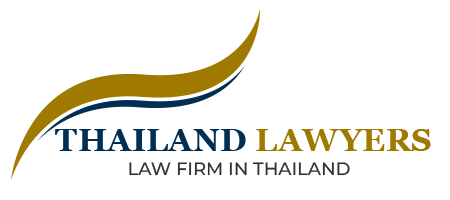Thai Business Partnerships. In Thailand, business partnerships are governed by the Civil and Commercial Code and offer flexibility for individuals and entities looking to collaborate in a commercial venture. Partnerships in Thailand come in several forms, each with different levels of liability and legal recognition. Foreign participation is allowed in Thai partnerships but may be limited under the Foreign Business Act (FBA), depending on the industry.
1. Types of Business Partnerships in Thailand
There are three primary forms of business partnerships in Thailand, each suited to different needs and legal considerations:
a) Unregistered Ordinary Partnership
This is the simplest form of partnership, where two or more individuals or entities agree to operate a business without formal registration. Partners share unlimited liability, meaning each partner is personally responsible for the business’s debts and obligations. The partnership does not have a separate legal identity from its partners.
- Liability: Partners have joint and unlimited liability for business obligations.
- Legal Status: Not a separate legal entity from the partners.
- Use Case: Typically suited for small, informal businesses, though it carries personal risk for partners.
b) Registered Ordinary Partnership
This partnership must be registered with the Department of Business Development (DBD), making it a legally recognized entity. Although the partners still hold unlimited liability, the partnership itself has a distinct legal personality, allowing it to enter into contracts and own property in its own name.
- Liability: Partners retain unlimited liability.
- Legal Status: The partnership has a distinct legal identity.
- Use Case: Suitable for businesses that require legal recognition but where partners are willing to accept personal liability.
c) Limited Partnership
In a limited partnership, there are two types of partners: general partners, who manage the business and hold unlimited liability, and limited partners, whose liability is limited to their investment in the partnership. Limited partners cannot participate in the management of the business.
- Liability: General partners have unlimited liability, while limited partners are only liable for their capital contribution.
- Legal Status: A separate legal entity.
- Use Case: Commonly used when outside investors are involved, providing protection for those contributing capital but not managing the business.
2. Foreign Participation in Thai Business Partnerships
a) Foreign Business Act (FBA)
The Foreign Business Act (FBA) regulates foreign ownership and participation in certain industries. Foreigners are generally restricted from owning more than 49% of businesses in many sectors, particularly service industries, unless they apply for a Foreign Business License (FBL).
- Foreigners can participate in partnerships as either general or limited partners, but ownership in restricted industries requires adherence to the FBA or application for an FBL.
- Exemptions: Foreign businesses may receive BOI (Board of Investment) promotion, which offers full foreign ownership in certain industries, such as manufacturing and export-oriented businesses. U.S. citizens also benefit from the U.S.-Thailand Treaty of Amity, which allows for 100% foreign ownership in most sectors.
b) Joint Ventures
Foreigners often form joint ventures with Thai nationals, particularly in industries where foreign ownership is limited. A joint venture can be structured either as a partnership or a limited company, allowing foreigners to hold minority ownership while the Thai partner holds the majority.
3. Legal and Financial Considerations
a) Partnership Agreement
A written partnership agreement is essential to define the rights, duties, and profit-sharing arrangements between partners. While not legally required, having a well-drafted partnership agreement minimizes disputes and clearly outlines the responsibilities of each partner. Key elements include:
- Capital contributions by each partner.
- Profit and loss allocation.
- Management and decision-making roles.
- Exit strategies and dissolution procedures.
b) Taxation
Partnerships in Thailand are taxed as juristic persons, meaning the partnership itself is taxed on its profits. Additionally, individual partners must report their share of profits on their personal income tax returns. A registered ordinary partnership and limited partnership are required to file annual financial statements and comply with corporate tax regulations, while unregistered partnerships may have less stringent reporting requirements.
c) Liability Management
For partnerships with unlimited liability, managing risk is critical. Partners should consider purchasing liability insurance and clearly defining their roles and responsibilities in the partnership agreement. In limited partnerships, general partners assume more risk, but limited partners have the advantage of being protected from personal liability.
4. Advantages and Disadvantages of Thai Business Partnerships
Advantages
- Flexibility: Partnerships offer a more flexible business structure than limited companies, allowing partners to define roles and responsibilities tailored to the business’s needs.
- Tax Benefits: Partnerships, especially registered ones, may enjoy certain tax advantages and simplified accounting procedures.
- Access to Local Markets: For foreign investors, partnering with Thai nationals can provide valuable local expertise and ease regulatory challenges, particularly in restricted sectors.
Disadvantages
- Unlimited Liability: In ordinary partnerships, partners face unlimited liability, meaning personal assets can be at risk if the business incurs debts.
- Foreign Ownership Restrictions: Foreign partners must navigate restrictions under the FBA, limiting foreign control in many industries without an FBL or BOI promotion.
- Disputes: Partnerships can be prone to disputes if roles and responsibilities are not clearly defined in the partnership agreement.
Conclusion
Thai business partnerships provide a flexible framework for collaboration, offering various structures to suit different levels of risk and involvement. While they present opportunities for both Thai and foreign investors, the legal and financial obligations must be carefully considered, especially regarding liability and ownership restrictions under the Foreign Business Act. By understanding the nuances of ordinary and limited partnerships, and working with experienced legal professionals, businesses can create strong and sustainable partnerships in Thailand’s growing economy.

